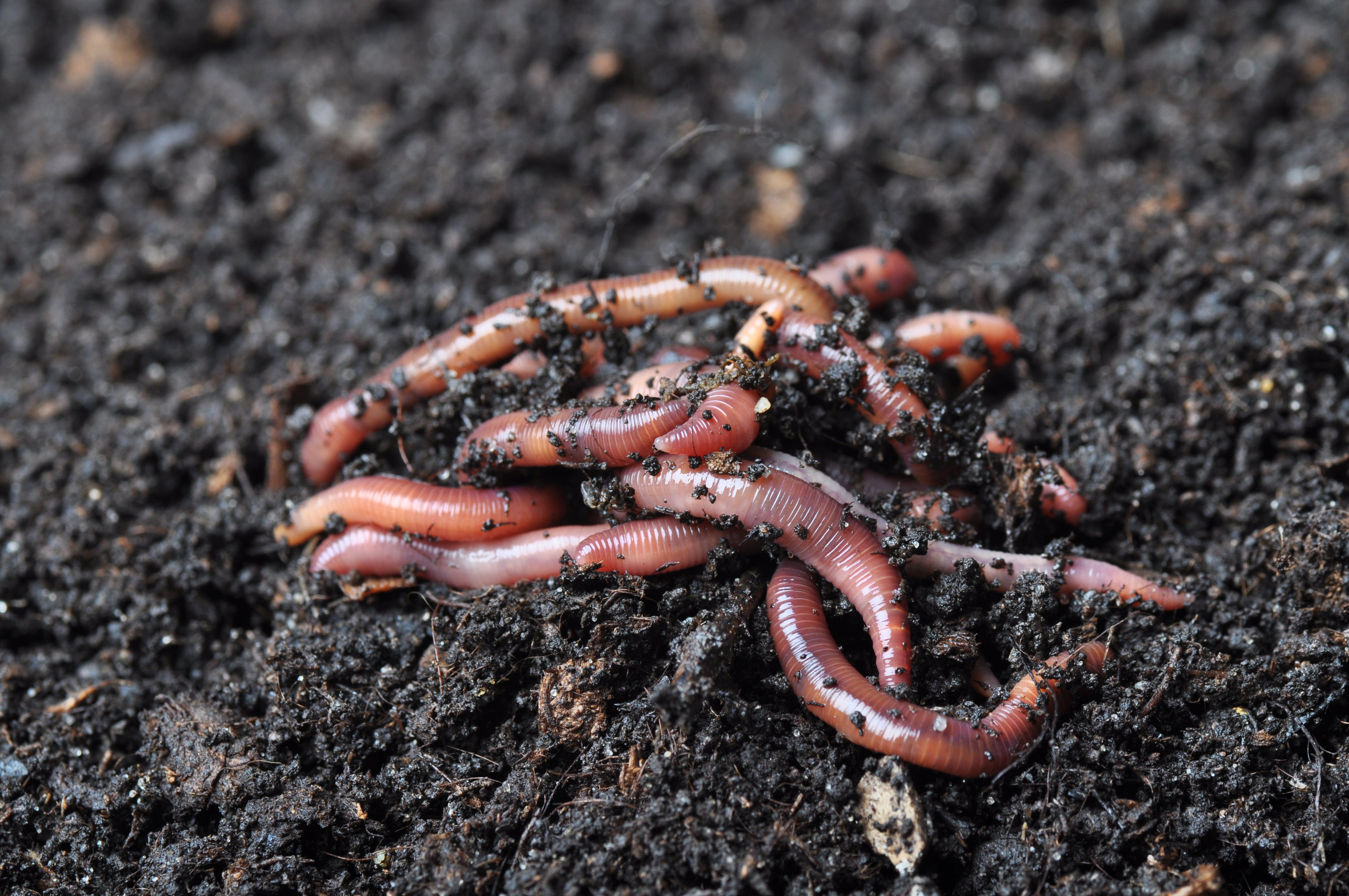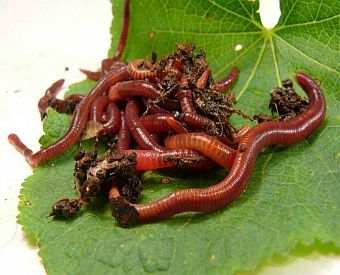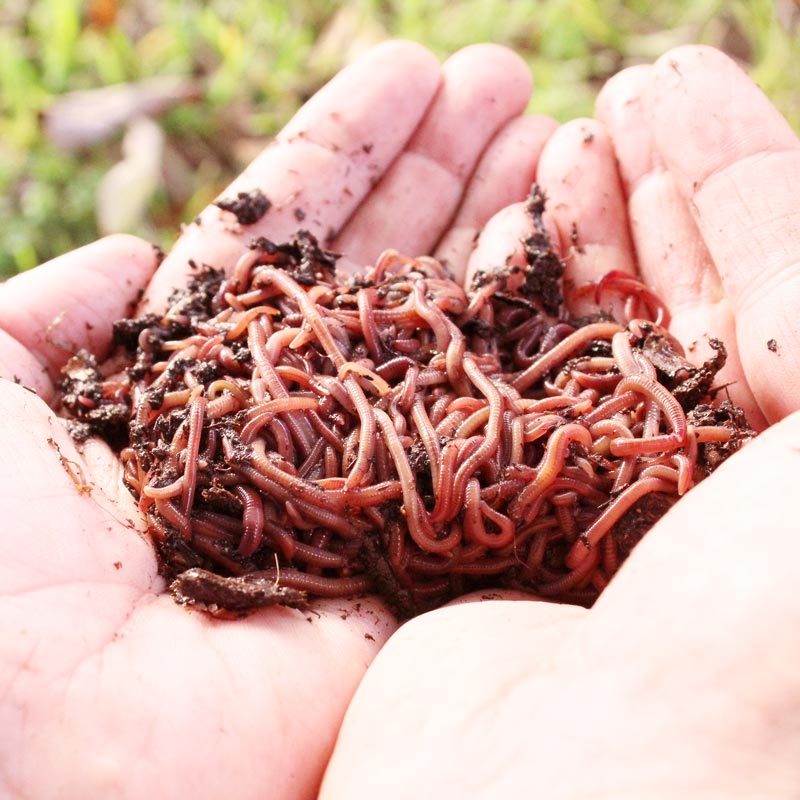Red Wiggler Worms - Important for Healthy and Productive Gardens
Red Wiggler Worms - Important for Healthy and Productive Gardens
Blog Article
Red Wiggler Worms Demystified: Opening the Keys of Vermiculture for Greener Living and Nutrient-Rich Soil
In the realm of lasting techniques for enhancing soil high quality and advertising eco-conscious living, red wiggler worms play an essential yet commonly ignored role. These humble animals have the exceptional ability to change natural waste into nutrient-rich spreadings that act as a powerful all-natural fertilizer. By diving into the globe of vermiculture, one can reveal a variety of benefits that expand far beyond standard composting techniques. Comprehending the details of looking after these worms, maximizing their environment, and using their castings can cause a greener way of life and much healthier soil for plants to grow.
The Duty of Red Wiggler Worms
Red Wiggler worms play a vital role in composting systems by effectively damaging down raw material into nutrient-rich spreadings. These voracious eaters take in a selection of organic products, such as cooking area scraps, yard waste, and paper products. As they feed, the worms' gastrointestinal procedures damage down the raw material into a fine, dark, and nutrient-dense material called worm spreadings or vermicompost.
The spreadings generated by Red Wiggler worms are very useful for soil health and wellness and plant growth. They are abundant in important nutrients like nitrogen, potassium, and phosphorus, which are important for supporting healthy plant advancement. Furthermore, worm spreadings consist of valuable germs and enzymes that assist boost dirt framework, rise water retention, and boost nutrient uptake by plants.
Advantages of Vermicomposting

Additionally, vermicompost, the nutrient-rich end product of vermicomposting, serves as an excellent natural fertilizer and soil conditioner. It boosts soil framework, improves dirt aeration, and raises soil dampness retention. These residential or commercial properties add to healthier plants with more powerful root systems and much better resistance to conditions and insects. Vermicompost additionally enhances the dirt with vital nutrients like potassium, nitrogen, and phosphorus, promoting plant growth and overall dirt fertility.
In addition, vermicomposting supports lasting horticulture practices by offering a chemical-free and all-natural choice to synthetic plant foods. Red Wiggler Worms. This ecologically friendly method not just improves the dirt but likewise assists lower dependence on hazardous chemicals, promoting a greener and a lot more sustainable method of gardening
Establishing a Worm Bin
When developing a worm container for vermicomposting, correct configuration is crucial to guarantee the success of the composting process. The initial action in setting up a worm bin is picking an ideal container.
After adding the bedding, present the red wiggler worms to the bin. It is recommended to begin with a handful of worms and slowly boost as they multiply. The worms ought to after that be supplied my sources with food scraps such as vegetables and fruit peels, coffee premises, and eggshells. It like it is necessary to avoid adding meat, milk, oily, or salty foods to prevent bring in insects and creating unpleasant smells.
Consistently keep an eye on the dampness degrees and temperature in the worm container to make sure optimal problems for the worms. With proper configuration and maintenance, the worm bin will properly transform natural waste into nutrient-rich garden compost for your plants and garden.
Gathering Worm Spreadings
To efficiently gather nutrient-rich worm spreadings from your vermicomposting system, a methodical harvesting approach is important. When it comes time to gather the worm castings, there are a few crucial actions to follow to make certain a successful process.

Troubleshooting Common Issues
Determining and addressing usual difficulties that may occur during the vermicomposting process is essential for maintaining a effective and healthy and balanced worm container. One typical issue that vermicomposters encounter is overfeeding. Including excess food scraps can bring about a buildup of moisture and acidity in the worm container, possibly hurting the worms. To avoid this, feed the worms in moderation, guaranteeing that the food scraps are appropriately damaged down before adding extra. One more issue is undesirable smells rising from the worm container. Foul smells indicate anaerobic problems, commonly triggered by overwatering or inadequate air flow. To remedy this, adjust the dampness levels by including completely dry bedding products like shredded newspaper or cardboard and boost aeration by transforming the bed linen on a regular basis.
In addition, if the worm population is declining or the worms show up undesirable, it can be due to ecological stress factors such as extreme temperature levels or pH levels. Keeping an eye on these variables and making required changes is vital for the health of the worms. By troubleshooting these typical problems promptly, vermicomposters can additional resources ensure a smooth and successful vermicomposting process while preserving a thriving worm population.

Conclusion
Finally, red wiggler worms play a vital duty in vermiculture by damaging down organic matter right into nutrient-rich dirt. The advantages of vermiculture include greener living and enhanced dirt top quality. Establishing up a worm container is necessary for effective vermiculture, and gathering worm castings provides beneficial garden compost for horticulture. By comprehending and fixing common issues, people can open the secrets of vermiculture for lasting living and healthier soil.
As they feed, the worms' digestion processes damage down the organic issue right into a fine, dark, and nutrient-dense material known as worm spreadings or vermicompost.
The spreadings produced by Red Wiggler worms are very valuable for dirt health and wellness and plant growth. Adding excess food scraps can lead to an accumulation of wetness and acidity in the worm bin, possibly hurting the worms.Additionally, if the worm populace is decreasing or the worms show up undesirable, it could be due to ecological stressors such as extreme temperature levels or pH levels. Setting up a worm bin is essential for effective vermiculture, and collecting worm castings gives important compost for horticulture.
Report this page